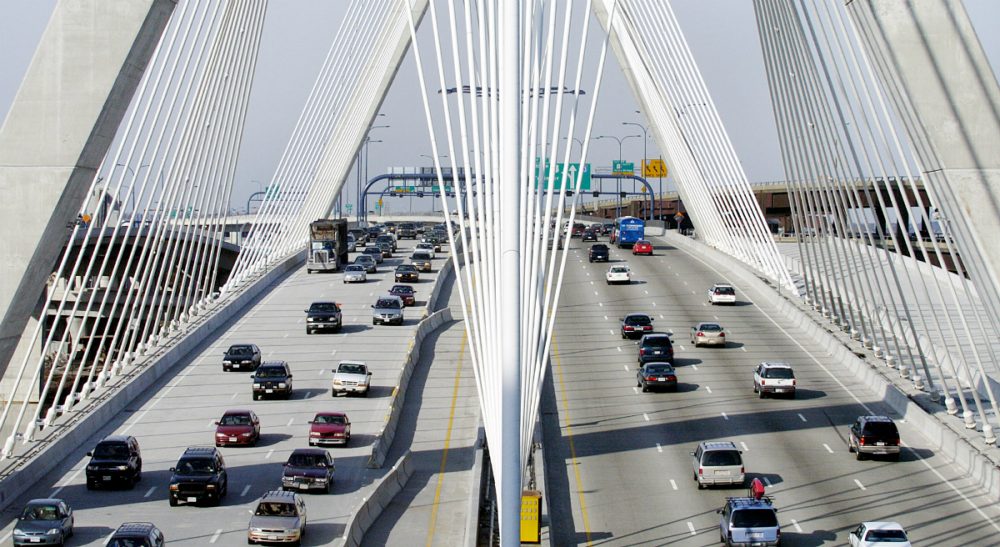Advertisement
Exodus: Why Are So Many People Leaving Massachusetts?

In recent weeks, Massachusetts has basked in the glow of good news about itself. In an annual report issued by Education Week, the state was ranked as having the best schools in the country, bolstering the commonwealth's reputation as a national leader in education. In a less publicized Bloomberg study, the state finished first in innovation, pulling ahead of technology giant California. In yet another recent ranking, the “Creative Class” index, published by Richard Florida of the Martin Prosperity Institute, the Boston area came in third, casting a spotlight on the talents of those living and working in the region. And, of course, there was the announcement that GE has decided to uproot its global headquarters in Connecticut to set up shop here in the Seaport District.
Why have U.S. residents...when voting with their feet, steered away from a state that is a leader in education and innovation -- cornerstones of the new economy?
Despite these and other positive announcements, there is another way to measure the state's overall health: the stability in numbers of its population. Herein lies a paradox: While the state's population has grown, it has not kept pace with growth in many other states.
Consider that in 1950, the state ranked 9th in population in the U.S. By 2000, it was 13th. By 2014, estimates show it was 14th, and, based on estimates released by the Census Bureau last December, in 2015, the state's population slipped to 15th in the nation. With declines can come a loss of political might in Washington.
That's not the only concern. In 2015, there was a net domestic migration out of Massachusetts, according to the Census Bureau's December estimates. Translation: More of the state's residents packed up and left compared with those who moved here from other states. Massachusetts had a net loss in domestic migration of 21,805 residents from July 2014 to July 2015, roughly the equivalent of losing the town of Winchester. In fact, an outbound flow in domestic migration has been a trend in Massachusetts for decades.
Still, the top-line numbers show that, bolstered by new births as well as immigration from outside of the U.S. into Massachusetts, the state’s population has grown. It stood at 6.79 million people in July 2015 — up 3.8 percent since 2010, and an increase of 39,298 people over July of 2014, or roughly equivalent of gaining a city the size of Woburn.
So, a question to ponder: Why have U.S. residents, on balance, when voting with their feet, steered away from a state that is a leader in education and innovation — cornerstones of the new economy?
Granted, the exodus here was smaller than in many other states. In the same year ending July 2015, New York, for example, had a net loss of 157,992 domestic residents, while Illinois saw a decline of 105,217. California, also a net loser in domestic migration, watched 77,219 residents vanish. The big gainers: Florida, Texas and Colorado.
The pace of movement seems to be on the rise. When the economy crashed during the Great Recession, the numbers of people moving from one state to another within the U.S. slowed. More recently, with a stronger economy, migration has picked up again, though it remained below the peak that preceded the financial crisis and economic collapse in 2008.
It's time for a new approach, one in which the entire region works toward a shared vision that encompasses housing and transportation in a changed world.
Perhaps you know of someone who grew tired of the winters here and was lured away by the warmth of the sunbelt or the vast open spaces of the West. But most people don’t pack up and leave a region just because of weather or open spaces. Other reasons, such as those related to a job, family, education, culture, financial situation or retirement, are usually bigger factors.
The high cost of housing in the Boston area, both to buy and to rent, is another factor, forcing quality-of-life trade-offs that many prospective residents may not be willing to make. Trade-offs can include opting for a longer commute, a smaller house, renting instead of owning, having multiple roommates or having less to put away for savings or to pay down student loans.
While not much can be done about a Massachusetts winter, housing should not be beyond the realm of a fix. Boston’s goal to add 53,000 housing units by 2030 may help. But for Boston proper to act in isolation from its suburbs seems like a disjointed effort given the inextricable link between them.
It's time for a new approach, one in which the entire region works toward a shared vision that encompasses housing and transportation in a changed world, the better to attract new residents, and the better to keep the ones who already live here.
